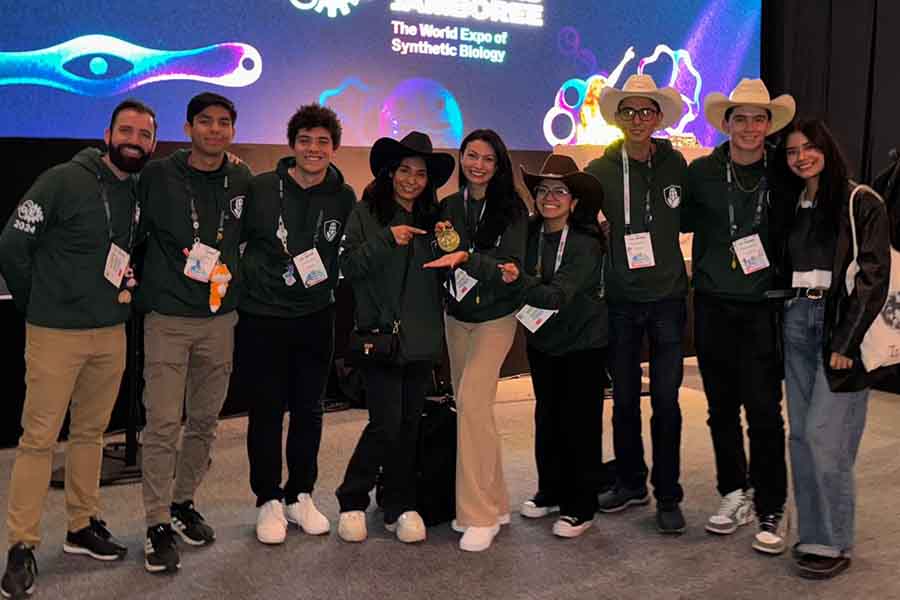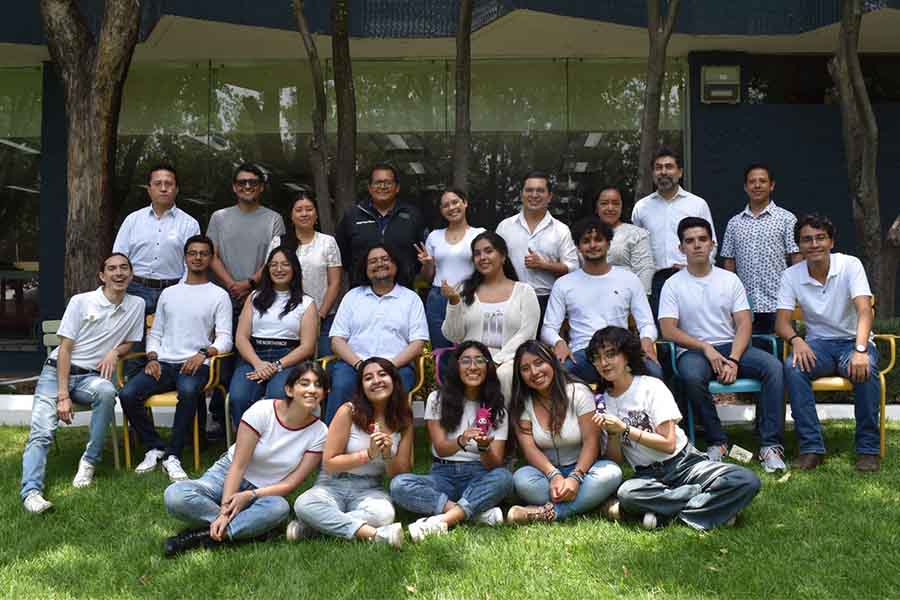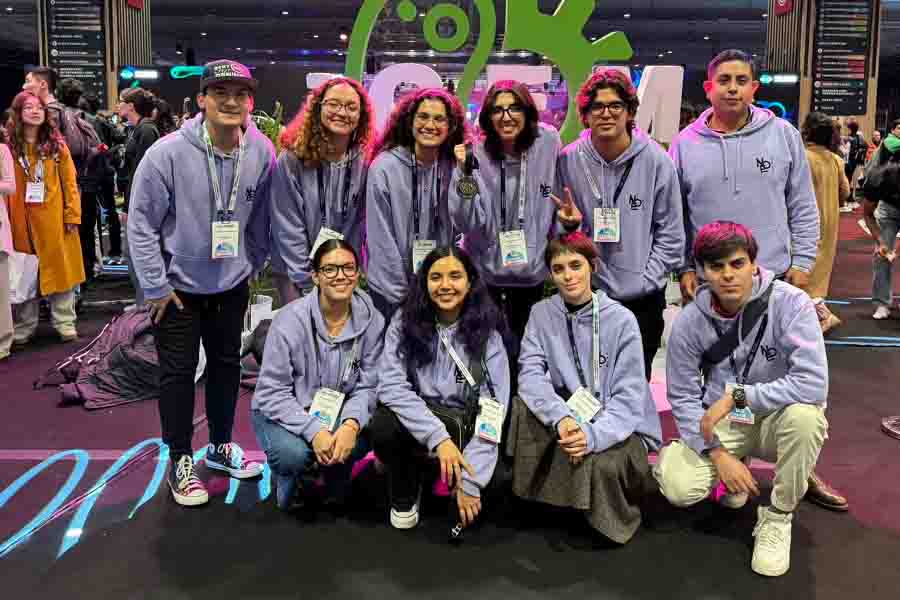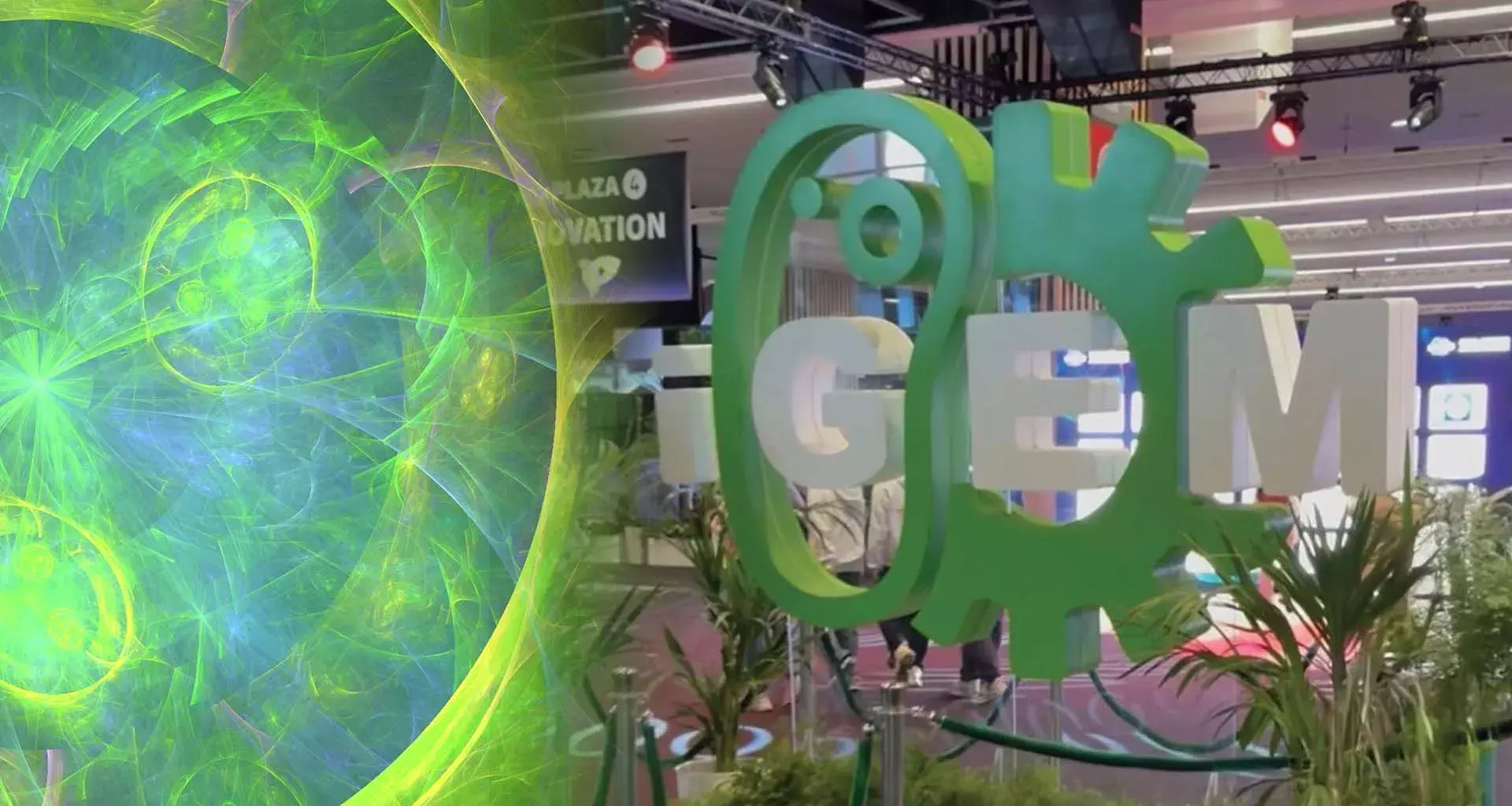Students from Tec de Monterrey have won two gold medals and one silver at the International Genetically Engineered Machine (iGEM) 2024 competition.
Organized into teams, the students created synthetic biology projects. The gold medals were won by the teams from Chihuahua and the State of Mexico, while the silver went to Guadalajara.
What’s more, the Chihuahua team was nominated for Best Food & Nutrition Project and Best Entrepreneurship, while State of Mexico was nominated for Best Integrated Human Practices, being chosen as one of the top five teams in each category.
The projects developed seek to offer solutions to real-world problems in categories such as climate crisis, agriculture, food, and nutrition, to name but a few. These students worked in a multidisciplinary fashion in order to innovate on biological mechanisms.
“One of the most important tips for people who are going to compete is to realize that you’re going to have an extraordinary and unforgettable experience,” said Rubén Valenzuela, a member of the Tec’s iGEM team in Guadalajara.
Biostimulant for boosting crop resistance to drought
Zymetec, a synthetic biology system designed to be integrated into agricultural irrigation systems to improve crop resistance to water stress, was a project developed by students from the Chihuahua campus.
Thanks to this project, the team won a gold medal in the Food and Nutrition category and two nominations for special prizes: Best Food & Nutrition Project and Best Entrepreneurship.
“This year, we’ve won our sixth consecutive gold medal in the competition.” - Cynthia Gonzalez Trevizo
“I’m very satisfied with the performance of the Tec Chihuahua team. This year, we’ve won our sixth consecutive gold medal in the competition,” highlighted Cynthia Lizeth Gonzalez Trevizo, the professor who advised the team from Tec Chihuahua.
The project not only sought to develop advanced techniques for tackling water stress but also embodied an integrated approach. Zymetec maintains corn’s nutritional value, guaranteeing food security, preserving jobs, and supporting cultural traditions, especially in regions where corn is essential, explained the professor.

Dietary supplement for preventing diabetes
The State of Mexico campus won a gold medal in the Food and Nutrition category with the ALEBBRIGE project, a dietary supplement which aims to contribute to preventing diabetes and its associated complications.
They were also nominated for the special prize of Best Integrated Human Practices, in which only five teams were nominated at undergraduate level.
“It was eye opening to find out how biotechnology is developed in different parts of the world and discover that there are many people interested in the same topics as me,” said Nydia Almudena Rojas Pompa, a student from the Tec in the State of Mexico.
According to these students, ALEBBRIGE includes a diverse range of bioactive protein peptides that provide precise nutritional support. It leverages the capabilities of the Bacillus subtilis bacterium as an efficient system for protein production.

Device for identifying wastewater pollutants
The NeoTech-e team from Guadalajara campus won a silver medal in the Bioremediation category thanks to their AQUASENS project, a portable system that can efficiently detect the pollutants present in water.
Based on FRET technology (Förster Resonance Energy Transfer), this device features a biosensor that identifies changes in fluorescence when it comes into contact with three specific pollutants: rifampicin, ibuprofen, and cadmium.
“We’d never had this experience of going to another part of the world, as well as applying what we’ve seen of this area of biology on the degree program,” said Rubén Valenzuela.
As part of their Human Practices project, Neotech-e organized classes at public elementary schools on topics such as synthetic biology, as well as visits to affected water bodies and industries to raise awareness of the current water situation in Jalisco.

Synthetic biology at iGEM
iGEM is an independent, non-profit foundation dedicated to the advancement of synthetic biology that seeks to inspire learning through education and competition.
Every year since 2003, it has held a synthetic biology competition for university students and is currently the largest competition of its kind in the world, bringing together 400 teams from over 40 countries.
Prior to the competition, students develop, test, and characterize genetically modified mechanisms in living cells, seeking to find solutions to real-world problems.
The teams receive a standard kit of over a thousand pieces called BioBricks. They develop their own designs with these and other parts.
The 2024 edition was held in the Paris Expo Porte de Versailles exhibition center in France.
DON’T LEAVE WITHOUT READING:





